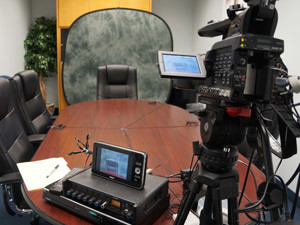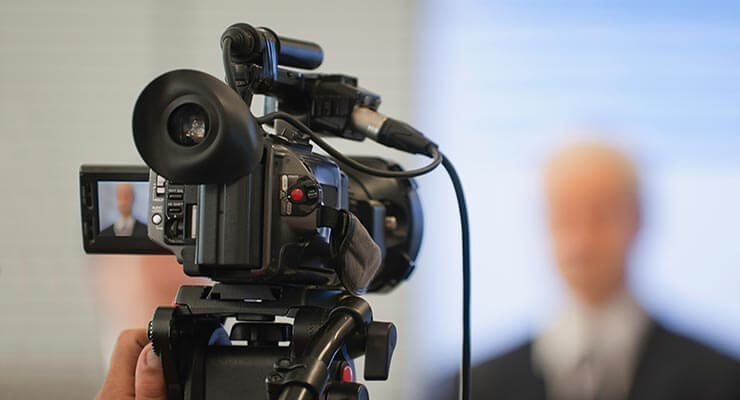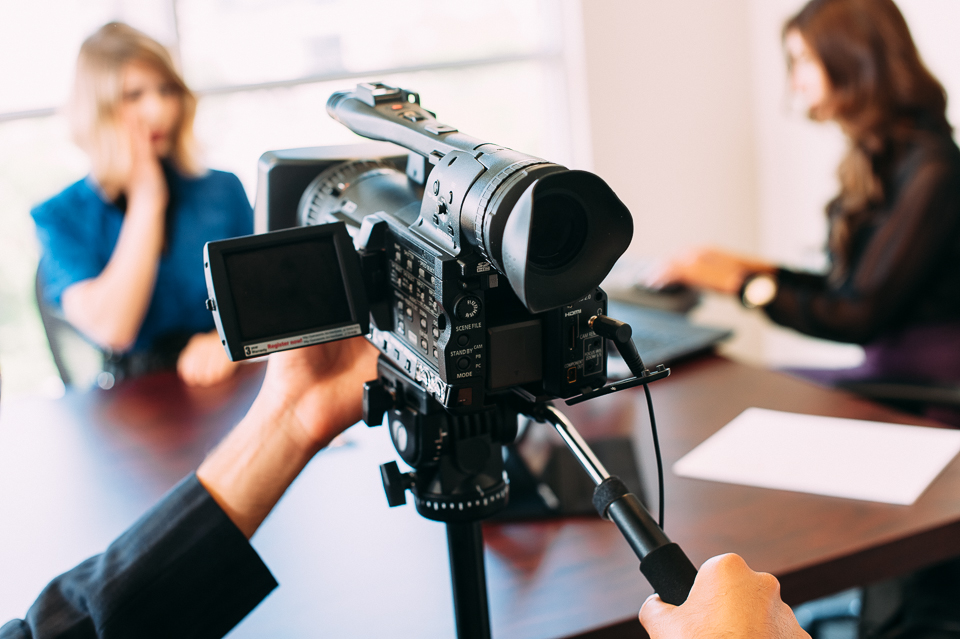Skilled Legal Videography for Case Recordings.
The Role of Legal Videography in Depositions and Tests
Legal videography has emerged as an essential tool in both depositions and tests, giving a complex technique to documenting witness testimonies. As lawful specialists significantly acknowledge its value, it prompts a much deeper exam of exactly how these visual documents can affect juror perceptions and trial end results.
Value of Legal Videography
Lawful videography plays a crucial function in the documentation and discussion of depositions and tests. This specialized area integrates technical abilities with legal knowledge to develop a reliable document of procedures that can considerably affect situation outcomes. The appearance of lawful videography improves the understanding of witness testimony, enabling jurors and judges to observe not just the spoken words but likewise the disposition, feelings, and body language of the witnesses.

The significance of legal videography expands beyond the courtroom; it additionally plays a crucial role in preserving proof for future recommendation, whether for appeals or more lawsuit. Thus, its combination into the lawful process is important for ensuring a reasonable and precise depiction of the truths, ultimately adding to the quest of justice.

Refine of Legal Videography
While capturing the nuances of depositions and tests, the procedure of legal videography includes a number of essential steps that guarantee high-grade, accurate recordings. A specialist legal videographer prepares by evaluating the situation products and comprehending the details needs of the deposition or test. This preparation includes familiarizing themselves with the individuals and the context, which assists in recording important details.
On the day of the recording, the videographer establishes the essential tools, which usually consists of high-def electronic cameras, microphones, and correct lights. Ensuring optimal angles and audio quality is essential, as it directly impacts the performance of the recording. The videographer communicates with lawyers and participants to develop protocols, making sure that everybody understands the recording procedure.
During the deposition or test, the videographer carefully records the process, paying very close attention to both verbal and non-verbal cues. legal videography. This includes recording the temperament and responses of witnesses and attorneys. After the session concludes, the videographer might edit the footage for quality and compliance with legal criteria, creating a final item that precisely reflects the process for future recommendation and use in lawful contexts
Benefits in Depositions
The incorporation of videography in depositions uses various benefits that improve the overall procedure of gathering proof. One primary advantage is the capability to record witness statements with aesthetic and auditory integrity, supplying a more precise representation of the witness's attitude, tone, and body language. This multidimensional strategy allows lawyers and juries to analyze trustworthiness more successfully than conventional written records alone.
Additionally, videographed depositions function as an effective tool for maintaining testimony. Must a witness become inaccessible for trial, their tape-recorded deposition can be played in court, making certain that their evidence stays accessible and appropriate. This facet considerably lowers the risk of losing vital details that could affect instance outcomes.
Moreover, the usage of legal videography promotes much better prep work for lawyers. Reviewing video footage allows legal teams to examine and improve their strategies, identifying strengths and weaknesses in their situations. This primary benefit can cause even more engaging discussions in court.
Last but not least, videography enhances the overall professionalism and trust of the deposition procedure, instilling self-confidence in customers pertaining to the thoroughness of their lawful depiction. By leveraging modern technology, lawful specialists can dramatically boost the performance of depositions.
Influence On Tests
In lots of tests, the combination of videography can substantially influence the presentation of evidence and the court's assumption. Lawful videography records witness statements and important evidence in a dynamic format, allowing jurors to engage with the product on numerous degrees. This visual component enhances the narration facet of a trial, offering context and emotional vibration that typical text-based proof may lack.
In addition, video clip recordings can work as powerful devices for impeachment throughout cross-examination. When discrepancies occur between a witness's previous statements and their courtroom testament, video clip evidence provides an unbiased recommendation that can sway jurors' point of views. This immediacy and clearness can reinforce the reliability of a party's story while concurrently weakening opposing arguments.
In addition, using videography can help simplify complicated details, making it a lot more accessible to jurors that may battle to read more understand intricate information presented only through spoken testimony. By combining visuals with auditory information, lawful videography can enhance retention and understanding, eventually influencing the court's decision-making procedure. As a result, the impact of videography in trials expands beyond simple aesthetic appeals; it plays an essential duty fit the legal landscape and end results.
Future Trends in Legal Videography
As we look toward the future of legal videography, numerous arising browse around this site trends guarantee to improve its duty within the courtroom. One considerable fad is the assimilation of synthetic knowledge (AI) in video clip evaluation and editing - legal videography. AI can improve the procedure of recognizing vital moments in tape-recorded depositions, permitting attorneys to rapidly access appropriate material, therefore boosting efficiency in case preparation
Furthermore, the increase of online truth (VIRTUAL REALITY) and boosted fact (AR) technologies is expected to transform how jurors experience evidence. By immersing jurors in a simulated atmosphere, these innovations can give an extra extensive understanding of intricate circumstances, bring about more informed considerations.

Furthermore, the enhancing demand for remote depositions, sped up by the COVID-19 pandemic, will likely continue. Legal videographers will certainly need to adjust to brand-new software program and systems to guarantee high-grade recordings in digital settings.
Finally, the helpful hints expanding focus on data security will necessitate stricter protocols for storing and sharing video clip proof. As the legal landscape develops, legal videographers need to remain abreast of these trends to preserve their significance and efficiency in the judicial process.

Verdict
In recap, lawful videography offers an essential function in the judicial process, improving the honesty of depositions and tests. As modern technology continues to evolve, legal videography is poised to additional transform its function within the legal landscape.